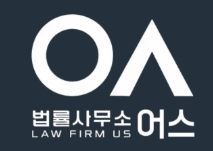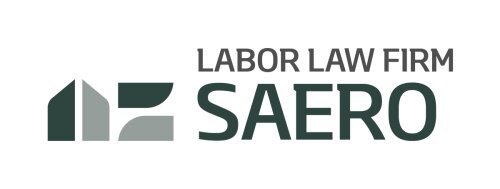Best Employment & Labor Lawyers in South Korea
Share your needs with us, get contacted by law firms.
Free. Takes 2 min.
Or refine your search by selecting a city:
List of the best lawyers in South Korea
About Employment & Labor Law in South Korea
Employment & Labor Law in South Korea governs the relationship between employers and employees. The scope of these laws includes issues such as working conditions, employee rights, termination procedures, labor unions, and dispute resolutions. South Korean labor laws are designed to protect workers, ensure fair practices, and maintain harmonious labor relations. Employers are required to comply with the statutory provisions of the Labor Standards Act, as well as other relevant laws and regulations.
Why You May Need a Lawyer
There are several common situations where you might need legal assistance in Employment & Labor matters in South Korea:
- Employment Contracts: Reviewing or negotiating employment contracts can require legal expertise to ensure that terms and conditions meet legal standards and protect your interests.
- Wrongful Termination: If you believe you have been dismissed unfairly, a lawyer can help investigate and potentially contest the termination.
- Discrimination or Harassment: Legal assistance can be crucial if you face discrimination or harassment at your workplace.
- Wage and Hour Disputes: Lawyers can assist with disputes over unpaid wages, overtime pay, or other compensation issues.
- Labor Union Issues: For matters involving collective bargaining or disputes with labor unions, legal counsel can provide necessary guidance.
Local Laws Overview
Key aspects of local Employment & Labor laws in South Korea include:
- Labor Standards Act: This act sets the minimum standards for employment conditions, including work hours, holidays, and termination procedures.
- Employment Contract Regulations: Contracts must specify terms and conditions of employment, including wages, work hours, and responsibilities.
- Minimum Wage Act: The government sets a minimum wage that all employers must adhere to, which is annually reviewed and adjusted.
- Equal Employment Opportunity and Work-Family Balance Assistance Act: This act prohibits discrimination based on gender, age, and several other factors, and supports employees in balancing work and family life.
- Industrial Accident Compensation Insurance Act: This provides for compensation and medical care for workers who suffer from work-related injuries or diseases.
- Trade Union and Labor Relations Adjustment Act: Governs the formation and operation of labor unions and the resolution of labor disputes.
Frequently Asked Questions
What is the legal working age in South Korea?
The minimum legal working age in South Korea is 15. However, employees under 18 are subject to special protection under labor laws, including restrictions on working hours and types of jobs.
Are employment contracts mandatory?
Yes, employers are required to provide a written employment contract detailing the essential terms of employment, including wages, work hours, and job duties.
What is the standard work week in South Korea?
The standard work week is 40 hours, typically distributed as eight hours per day over five days. Overtime should be compensated at a higher rate as specified by law.
How is overtime compensation handled?
Overtime must be paid at a rate of at least 50% above the standard hourly wage. This includes work performed beyond standard work hours or on holidays.
What leaves are employees entitled to?
Employees are entitled to several types of leave, including annual leave, sick leave, maternity leave, and family care leave, as prescribed by the Labor Standards Act.
Can employers unilaterally terminate employment contracts?
Employers can only terminate contracts for justifiable reasons, and they must provide advance notice. Specific procedures depend on the nature and length of the employment.
What protections exist against workplace harassment?
Employees have the right to a harassment-free workplace. Harassment should be reported, and employers are obligated to take corrective action as per legal guidelines.
Are there regulations regarding wages and salaries?
Yes, including compliance with the minimum wage laws and regulations governing regular payment intervals, wage deductions, and severance pay.
What is the role of labor unions in Korea?
Labor unions represent workers in discussions with employers over conditions of employment, and they can engage in collective bargaining or strikes under regulated conditions.
Can foreign workers demand the same rights as Korean workers?
Yes, foreign workers enjoy the same rights and protections under South Korean labor laws as local employees, irrespective of their nationality.
Additional Resources
Here are some helpful resources and organizations for those seeking legal advice or support in Employment & Labor matters in South Korea:
- Ministry of Employment and Labor: Provides comprehensive guides on labor laws and can facilitate dispute resolution.
- Korea Legal Aid Corporation (KLAC): Offers legal advice and representation for labor issues at reduced costs.
- National Human Rights Commission of Korea: Addresses issues related to workplace discrimination and harassment.
- Seoul Global Center: Offers information and support services to foreign workers and residents.
- Korean Confederation of Trade Unions (KCTU): A major labor organization offering support and advocacy for worker rights.
Next Steps
If you require legal assistance with Employment & Labor issues in South Korea, consider taking the following steps:
- Consultation: Seek a consultation with a qualified labor attorney to discuss your situation and legal options.
- Gather Documentation: Collect all relevant documents, such as employment contracts, pay stubs, and any correspondence with your employer.
- Legal Aid Services: If cost is a concern, explore legal aid resources that can offer support at low or no cost.
- File a Complaint: If applicable, you may file a complaint with the Ministry of Employment and Labor or other relevant bodies for investigation.
- Seek Mediation: Consider mediation services through government or private organizations to resolve disputes amicably.
Lawzana helps you find the best lawyers and law firms in South Korea through a curated and pre-screened list of qualified legal professionals. Our platform offers rankings and detailed profiles of attorneys and law firms, allowing you to compare based on practice areas, including Employment & Labor, experience, and client feedback.
Each profile includes a description of the firm's areas of practice, client reviews, team members and partners, year of establishment, spoken languages, office locations, contact information, social media presence, and any published articles or resources. Most firms on our platform speak English and are experienced in both local and international legal matters.
Get a quote from top-rated law firms in South Korea — quickly, securely, and without unnecessary hassle.
Disclaimer:
The information provided on this page is for general informational purposes only and does not constitute legal advice. While we strive to ensure the accuracy and relevance of the content, legal information may change over time, and interpretations of the law can vary. You should always consult with a qualified legal professional for advice specific to your situation.
We disclaim all liability for actions taken or not taken based on the content of this page. If you believe any information is incorrect or outdated, please contact us, and we will review and update it where appropriate.
Browse employment & labor law firms by service in South Korea
South Korea Attorneys in related practice areas.
Browse employment & labor law firms by city in South Korea
Refine your search by selecting a city.














